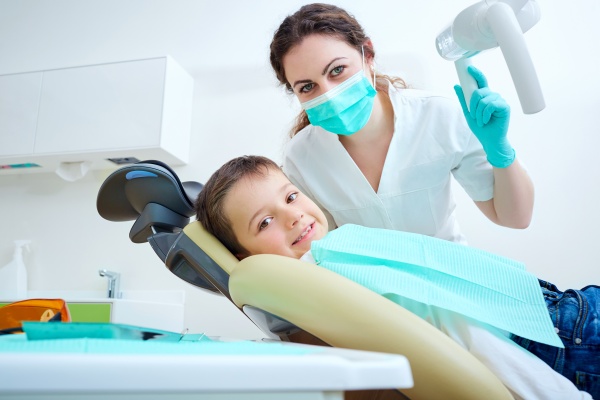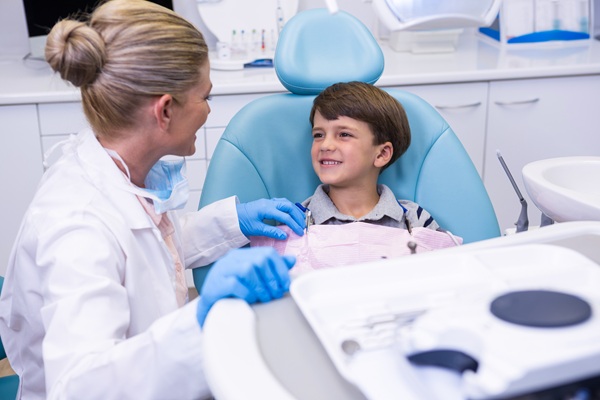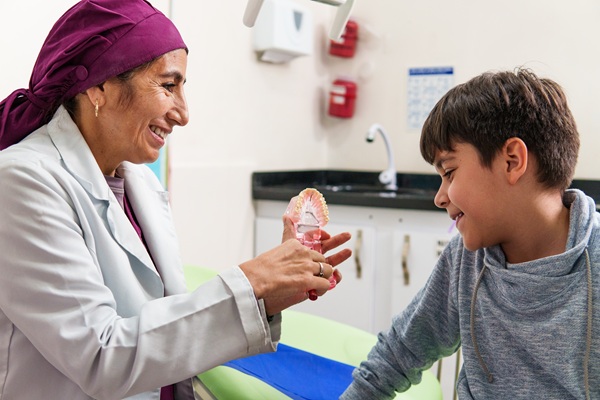What Is Baby Bottle Tooth Decay and How Does a Kid Friendly Dentist in Dumont Detect It?

One of the responsibilities of a parent is to take children to a kid-friendly dentist, which is important for their oral health. The baby teeth play a crucial role during childhood, from chewing and talking to preserving the space for incoming permanent teeth. If a baby tooth is lost prematurely, it could disrupt the teeth’ alignment on the jaw, necessitating orthodontic treatment. Babies are prone to tooth decay from the moment their first tooth erupts. Therefore regular appointments with a kid-friendly dentist are essential.
Baby bottle tooth decay
Baby bottle tooth decay is the term for early childhood cavities that affect infants and toddlers. Although the condition may affect any teeth, it is more common in the front teeth on the upper jaw. If baby bottle decay gets too severe, a kid-friendly dentist may not be able to repair or save the decayed tooth. When this happens, the kid-friendly dentist will remove the affected tooth and provide a space maintainer to prevent the remaining teeth from shifting out of alignment. Visiting the dentist regularly and adopting a good home oral care routine is effective for preventing baby bottle tooth decay.
The beginning of baby bottle tooth decay
Bacteria that produce acid in the mouth are the cause of tooth decay. Bacteria may be transferred to the baby through the parent’s saliva or through unclean baby bottles, which is more common than most people realize. It can be difficult to thoroughly clean a baby bottle, ensuring that no bacteria remains.
However, the major cause of this tooth decay is recurrent exposure to sweetened or sugary liquids. These liquids can be breast milk, juice, baby formula and sweetened water, practically any drink that parents might put in their baby’s bottle.
If the sweetened drinks are provided at bedtime or naptime, there is increased risk since the sugary elements will stay in the mouth for longer periods. The oral bacteria feast on the sugar present in the mouth and, in the process, expel harmful acids. These acids deteriorate the enamel, causing cavities or tooth decay, which in turn, leads to a need to visit a kid-friendly dentist.
Detecting decay
The kid-friendly dentist can discover potential issues with a baby’s teeth, including baby bottle tooth decay. Therefore, regular dental appointments are important. The dentist will examine the child’s teeth to search for signs of tooth decay. They will then clean out the decay and cover it with a dental filling to make the tooth whole.
Infants who are not getting the proper level of fluoride are more at the risk of baby bottle decay. Fluoride helps to protect the tooth enamel, and at the same time, reduces the loss of minerals and encourages remineralization. During a dental appointment, the kid-friendly dentist will ask several questions and perform examinations to determine if the child needs fluoride supplements or is at risk of developing baby bottle decay.
Final thoughts
Oral health habits begin at home. Parents can prevent baby bottle tooth decay by cleaning the child's teeth properly and meeting with a kid-friendly dentist regularly. The dentist can provide preventive measures and instructions to reduce the child’s risk of cavities.
Request an appointment here: https://novapedsdentistry.com or call Nova Pediatric Dentistry at (201) 812-2952 for an appointment in our Dumont office.
Check out what others are saying about our services on Yelp: Read our Yelp reviews.
Recent Posts
A kid friendly dentist understands the importance of creating a welcoming and comfortable environment tailored to young patients' needs to help alleviate the child's stress or anxiety. Establishing positive dental experiences early on is not just about the present, but it also ensures children develop healthy oral hygiene habits that last a lifetime. Learn the…
Infants can benefit from seeing a pediatric dentist when primary teeth begin to erupt. Primary teeth are placeholders for permanent teeth and should receive the same attention, including appropriate home care.Primary teeth are crucial to a baby's health and development. Therefore, dentists encourage parents to begin an infant's oral hygiene routine as soon as possible…
Going to an emergency pediatric dentist can give your child immediate dental needs. Treating urgent dental issues can provide relief right away. It can also prevent complications. Here are the necessary steps that you can take even before the drive to your emergency pediatric dentist.Showing distress will only intensify the child’s anxiety. This will make…
Caring for kids' teeth is essential for their health and speech development. When a tooth becomes damaged, kids' dental crowns can help restore its function and protect it from further harm. In the past, dentists commonly used metal crowns for kids, but advancements in dentistry have introduced metal-free options. These modern crowns provide a natural…


